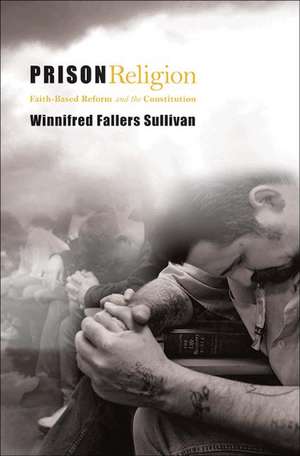Prison Religion – Faith–Based Reform and the Constitution
Autor Winnifred Falle Sullivanen Limba Engleză Paperback – sep 2011
Americans United for the Separation of Church and State v. Prison Fellowship Ministries, a trial in which Sullivan served as an expert witness, centered on the constitutionality of allowing religious organizations to operate programs in state-run facilities. Using the trial as a case study, Sullivan argues that separation of church and state is no longer possible. Religious authority has shifted from institutions to individuals, making it difficult to define religion, let alone disentangle it from the state. Prison Religion casts new light on church-state law, the debate over government-funded faith-based programs, and the predicament of prisoners who have precious little choice about what kind of rehabilitation they receive, if they are offered any at all.
Preț: 263.63 lei
Nou
Puncte Express: 395
Preț estimativ în valută:
50.45€ • 54.97$ • 42.51£
50.45€ • 54.97$ • 42.51£
Carte tipărită la comandă
Livrare economică 23 aprilie-07 mai
Preluare comenzi: 021 569.72.76
Specificații
ISBN-13: 9780691152530
ISBN-10: 0691152535
Pagini: 320
Dimensiuni: 152 x 227 x 24 mm
Greutate: 0.43 kg
Editura: Princeton University Press
Locul publicării:Princeton, United States
ISBN-10: 0691152535
Pagini: 320
Dimensiuni: 152 x 227 x 24 mm
Greutate: 0.43 kg
Editura: Princeton University Press
Locul publicării:Princeton, United States
Notă biografică
Descriere
Presents an examination of a 2005 lawsuit challenging the constitutionality of a faith-based residential rehabilitation program in an Iowa state prison of America. This work casts light on the predicament of prisoners who have precious little choice about what kind of rehabilitation they receive, if they are offered any at all.
